Isaiah 42:1-9
As we enter into Holy Week, we enter into what mystics refer to as “the dark night of the soul.” (see: The Cloud of Unknowing, or Teresa of Avila’s The Interior Castle). This is the space of life in which it seems that we are turning towards seemingly endless struggle, difficulty, or complexity, no known sight in end. When harm or suffering are brought into our lives, the Holy Spirit invites us to overcome them by engaging the cover of darkness to refocus and reengage our spirits and imaginations towards healing and transformation.
We shift from Christ’s celebratory entry into Jerusalem at Sunday worship to what we know is impending towards the end of Holy Week, to what took Christ to the Garden of Gethsemane to pray for release of how his society would turn on and persecute him.
We currently live in a historical moment in which we have the gift of better knowing, becoming, and living our full, God-gifted selves. Even 20, 15, 10 years ago, it would be considered absurd to have openly LGBTQIA clergy. The congregants, parishioners, and choir directors who hold any of these identities were still quietly tolerated and “allowed” into the fellowship, so long as we didn’t lift up our voices or lives to claim who we are. This is the joy that was celebrate at Easter—being openly and fully risen in who we are created to be.
And yet, there are these spaces of the dark night of the soul, far more than we would/should have to experience and live through, in which we are challenged again and again to claim who we are in the face of others’ insistence that we are wrong because their whiteness-centered, heterosexist theology claims such. We are compelled, time and again, to simply live our lives, to dodge, duck, dip, or dive around those who believe that faith is about forcing their beliefs on one another. We are each to faithfully live what it is we claim first and foremost from our own lives.
It is a dark night, indeed, when one child is told that they are too young to know that they are transgender, while seemingly cishetero children are encouraged in their sexuality to freely date—somehow their understanding of their sexuality at their age is clear and “true.”
It is a dark night, indeed, when children are threatened with being left out in the literal cold by the families to whom God gave them to raise them up and nature them in birthright being and gifts (hey, Parker Palmer). The unfortunate and often believed insistence of these families is that LGBTQIA children are violating a human-created religion in their journey of desiring to know and live who God created them to be.
It is a dark night, indeed, when we spend more time explaining and defending who we are, than celebrating together as one another the diverse gift that God created us to be together.
It is a dark night, indeed, when we are told that we are wrong according to human beings for seeking to live fully and faithfully as God made us.
As womanist poet and activist June Jordan affirmed of herself and one another in her “Poem About My Rights”:
My name is not wrong
Wrong is not my name
My name is
My own, my own, my own
The Easter vision beyond these dark nights are like Christ’s vision in the Garden of Gethsemane: To remember and hold that, despite what we may know is coming and arising, we are not only not wrong, but leaning fully into the gift of our whole and holy selves. Because we are also those in whom God’s soul delights, and our claiming and living our whole created beings is itself an act which will bring justice forth to the nations (Isa. 42:1). Liberation—Easter—is not acts of defiance against a power dynamic that is false, even when it has real impacts. Easter freedom and resurrection means living towards discovering and celebrating the whole of whom each of us is beautifully and belovedly created to be in God.
So as and when dark nights loom and hover, may we know, may we believe, may we live that, though God doesn’t desire that we make one another suffer, the Holy Spirit is deboing that suffering, and inviting us to a greater place beyond it. To a place where we will not become what we seek to overcome, nor stay ensnared by injustice. May we agree, go, and live.
Spiritual Practice
Place yourself in a relaxed position. You may sit, lie down, or walk gently; cross legs or keep heels firmly on the floor. Do what calls for you.
Engage a gentle body scan. As able, comfortable, and desirable: Roll your neck side to side. Back and forth. Shoulders—front and around, back and around, shrug up and down. Lean torso side to side, and front to back. Left legs gently at the knee and return to floor—right leg, and then left leg; left leg, and then right leg. Swirl the ankle of each foot around, and then up and down. Wiggle your toes. Jelly your arms and fingers.
Notice any place that feels tight or shrugged up, and work them gently as you breathe gently in. And out. And in. And out.
With your eyes closed, still breathing gently, notice the darkness behind your lids. There are likely streaks of light, remnants from when the light was permitted more fully in. There may be a glow of light beyond your lids, from the light in the room.
Acknowledge that the light is there, but focus with the darkness.
In the darkness: What vibrancy, opportunities, creativity is possible? What can we vision and imagine here that is not possible in light and “seeing?”
Who are we, who can we become? What can we receive in the space, this space where, because we see nothing definitive, all things are possible to vision?
Continue to breathe.
Continue to notice.
Continue to imagine.
Who is here with you, sharing in love and support with one another? What does it look, feel, taste like? How would you like to continue to cultivate that love and support beyond here?
Who is here struggling and even failing to love? Envision yourself enshrouded in a cocoon of glowing warmth and energy. You may not want to or be in a place to invite them in; hold yourself in the cocoon so that you are protected, and also so you don’t lash out.
Continue to breathe.
Continue to notice.
Continue to imagine.
Imagine yourself shifting to where you are beyond the reach of harm. Imagine yourself where you are beyond seeking to return it to a person, or turning it upon someone else.
Imagine your cocoon growing not to defend or to protect you, but to expand your being, your healing and thriving energy, across the room. The world. The universe.
Continue to breathe.
Continue to notice.
Continue to imagine.
What might you take with you from this space of imagining, that you would like to make real in the conscious and in today?
Continue to breathe.
Continue to notice.
Continue to imagine.
As you continue to breathe, gently, slowly drift back across the universe. Into this world. Into your body. Return to your body.
When you are ready, and on your final exhale, open your eyes.
You are blessed to become and live as you have received your self.
Amen and axé.
A demisexual, Joy Bronson is a deacon-in-residency in the United Methodist Church. She received her M.Div. from Vanderbilt Divinity School in 2018. Her vocation and ministries are as a calling and vocation coach: helping one another to discern, form, and meaningfully live who God has created and named us to be, in justice, love, and beloved community. She currently serves as the Lilly Grant Coordinator at American Baptist College (TN), and as a strategic planning associate with CauseImpact, LLC (OH).

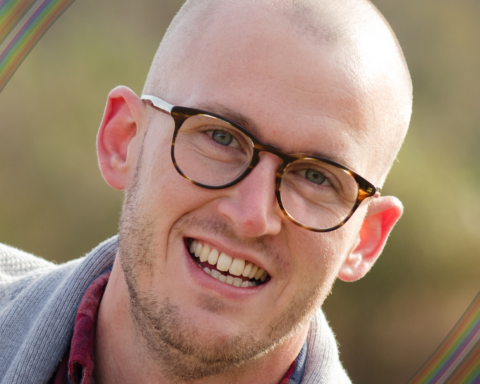
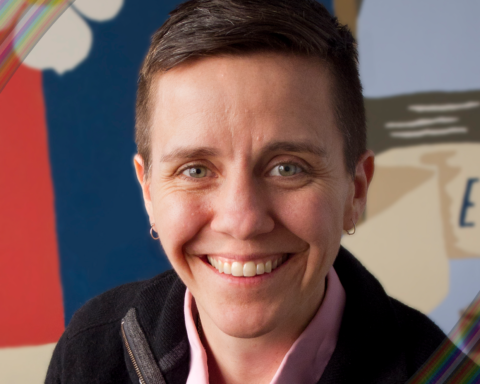
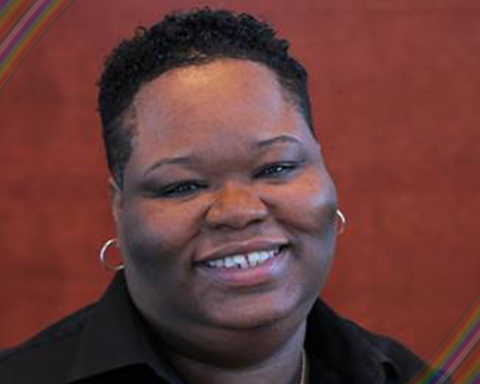
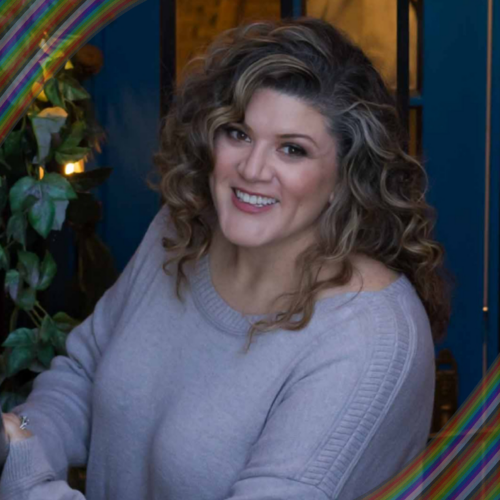
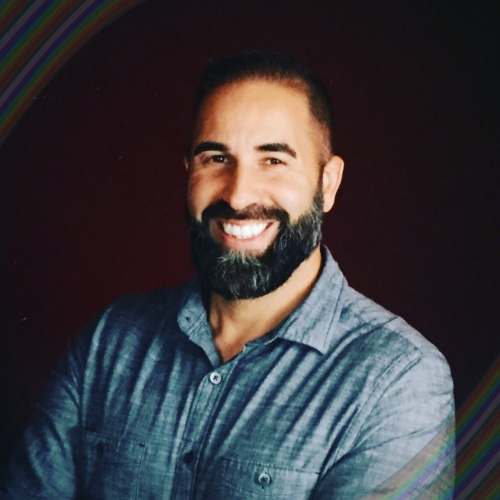
Unbound Social